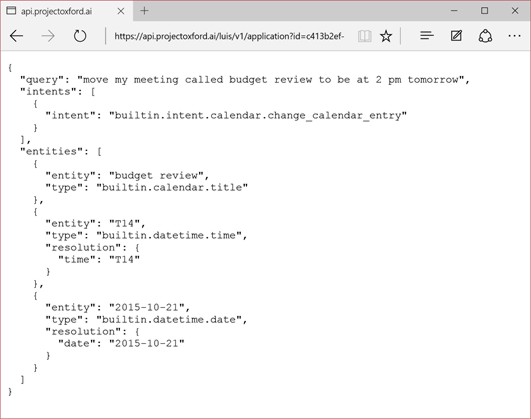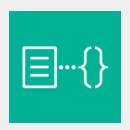| Project Oxford Extends Reach |
| Written by Alex Armstrong | |||
| Monday, 09 November 2015 | |||
|
Microsoft Research has provided a public beta of LUIS, Language Understanding Intelligent Service, the fourth element of Project Oxford. Meanwhile beta versions of the other three SDKs are now available on GitHub. Project Oxford from Microsoft Research provides pre-trained artificial intelligence services in four categories - Face, Speech, Vision and Language Understanding. Reporting the announcement of Project Oxford at this year's Build, Mike James explained by this is such a welcome idea: The big problem with incorporating AI into your own project is that it is not only complicated but time consuming. Even if you understand the theory to build your own working AI, you need a lot of data and a lot of time spent training it to produce a good performance. Of course, if what you need is something that tackles a standard task, you could use something that had been trained by someone else. Examples of using the Face API in apps were quickly forthcoming, see How Old - Fun, Wrong, Potentially Risky? and Twin Detection Using AI. Now, along with the computer vision and speech APIs, the Face Detection and Face Verification client libraries and samples are on GitHub. The remaining API for creating language understanding models that can be used with the speech API and its intent recognition is the most flexible and technically demanding and up until now has been in invitation only beta.
Now, as announced in a blog post Ryan Galgon, Senior Program Manager in the Technology & Research group at Microsoft, Project Oxford’s Language Understanding Intelligent Service (LUIS) has public beta availability anyone can create an account to create models to understand intents and entities and to deploy them to an HTTP endpoint or to a device. Sample code is available to help new users: |
The Impact Of Code Club 25/06/2025 In the era of AI, the Raspberry Pi Foundation takes the view that learning how to create with technology has never been more important. Last year it revamped its Code Club network of free co [ ... ] |
Two Tools To Elevate Your MongoDB Experience 03/07/2025 The tools contradict each other; the first one allows you to write SQL instead of using Mongo's special syntax, while the other allows you to manipulate the database without having to write SQL a [ ... ] |
More News
|
Comments
or email your comment to: comments@i-programmer.info




